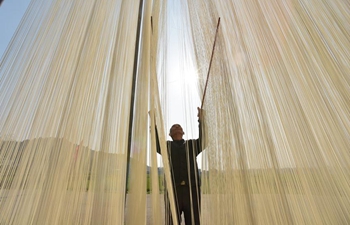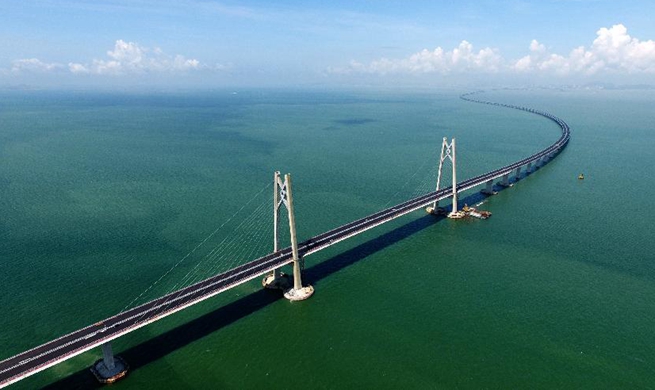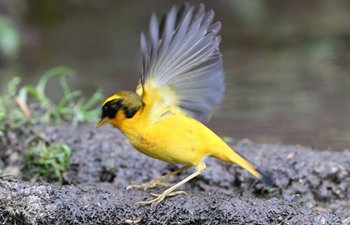COLOMBO, Dec. 21 (Xinhua) -- Prime Minister Ranil Wickremesinghe said construction of the Dedduwa tourism zone, Sri Lanka's biggest tourism project, will begin in March next year to lure more tourists to the island country, state media reported Thursday.
The prime minister said the Dedduwa project, which is located in the Galle District in southern Sri Lanka, will focus heavily on conservation of the natural eco-system.
Wickremesinghe added that new laws will be formulated to protect the environment in the area during construction.
"We have a plan to convert this 1,800-acre area into the best tourism destination in South Asia," he said.
"Lunuganga, an area that will be a key part of the Dedduwa project, is well-known because of the legendary architect Geoffery Bawa. The project will be very much in line with Bawa's concepts and will further enhance the natural beauty of the area," he added.
Wickremesinghe explained the government will carry out this significant tourism development project in collaboration with the private sector.
The Galle district in southern Sri Lanka, the prime minister said, is located between two international airports Katunayake and Mattala.
"Although many concentrate on the coastal area of Galle in terms of tourism, its interior areas are blessed with natural beauty and have immense potential. That is why we have already made plans to start tourism projects in Akurala and Koggala. With all these projects, Galle, I am certain, will become a major tourism hub in the region."
Sri Lanka's tourism sector has continued to grow since a three-decade civil conflict ended in May 2009 between government troops and Tamil Tiger rebels.
China has been Sri Lanka's second largest market with 249,000 Chinese tourists arriving so far this year.
India has continued to be the leading market while Europe and Britain have also witnessed a growth in recent years.
Sri Lanka has become a famous tourist destination among Chinese travelers and the government hopes to attract at least 1 million Chinese tourists per year by 2020.

















